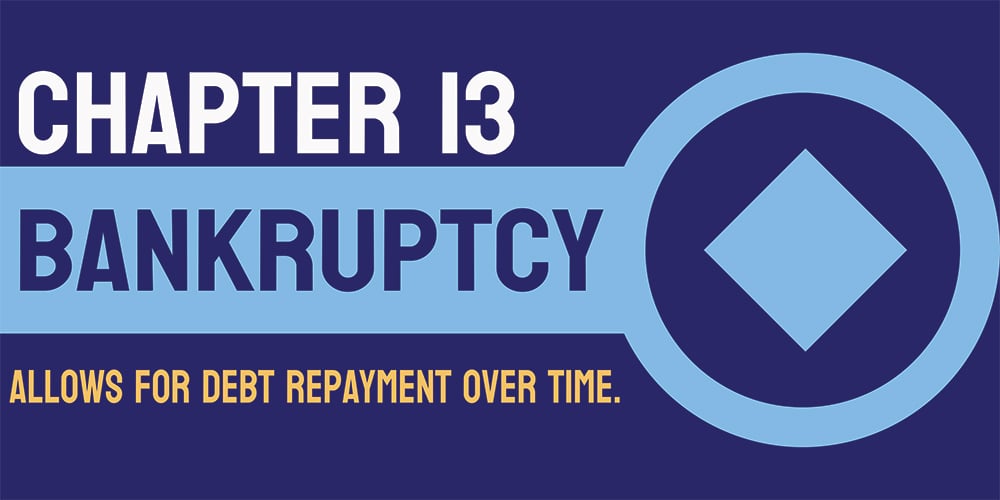If you are in a Chapter 13 bankruptcy and because of changed circumstances you can’t make your Chapter 13 Plan payments, the bankruptcy rules allow you to convert your case to a Chapter 7 bankruptcy.
What Does Conversion Mean?
Converting your Chapter 13 case means that your Chapter 13 bankruptcy ends, and the case is treated as a Chapter 7. Your case number and the date of filing of your bankruptcy remains the same. Once the bankruptcy is converted any funds being held by the Chapter 13 trustee are returned to you, less any administrative fees.
When to Consider Converting from Chapter 13 to Chapter 7
Converting your case from Chapter 13 to Chapter 7 may be the right choice for you in the following circumstances:
-
Financial hardship:
You have experienced a significant change in your financial situation due to situations such as job loss, medical expenses, personal injury, or divorce, making you unable to make your Chapter 13 Plan payments.
-
Denial of Plan or Plan Modification:
Your Chapter 13 Plan or requested Plan modification was denied.
-
Desire For a Fresh Start As Soon As Possible:
You might simply prefer the quicker time frame in getting a discharge in a Chapter 7 bankruptcy. A Chapter 7 case typically lasts 3 to 4 months which means you should receive your discharge within months after the conversion date.
What is the Conversion Process?
The conversion process is relatively simple and begins with the debtor’s attorney filing a notice of conversion and paying the court fee. Within a few days of filing the notice, your case is converted to a Chapter 7.
Once the case is converted to Chapter 7 the following occurs:
- A Chapter 7 bankruptcy trustee is appointed to supervise your case.
- A new 341 meeting of creditors is scheduled.
- You must file additional documents with the court that were not filed in the Chapter 13 case. For example, you must submit a Statement of Intention which advises the court and the creditors what you intend to do with the collateral securing your loans. You must also file amended schedules to include any additional debt incurred between the original filing date and the date of the conversion.
- You may need to amend and update other schedules to reflect any other changes that have occurred.
- If you did not complete the Debtor Education Course while in the Chapter 13, you must do so in order to get your discharge.
It is important to confer with your bankruptcy attorney regarding the consequences of conversion and how it will impact your individual finances. If you are struggling in your Chapter 13 case and you are interested in learning more about converting it to a Chapter 7, contact Levitt & Slafkes, P.C. We are experienced in handling a variety of bankruptcy issues. Our offices are conveniently located in Maplewood, New Jersey. Please call us at 973-323-2953 or online to schedule your free initial consultation today.

We are proudly designated as a debt relief agency by an Act of Congress. We have proudly assisted consumers in filing for Bankruptcy Relief for over 30 years. The information on this website and blogs is for general information purposes only. Nothing should be taken as legal advice for any individual case or situation.


